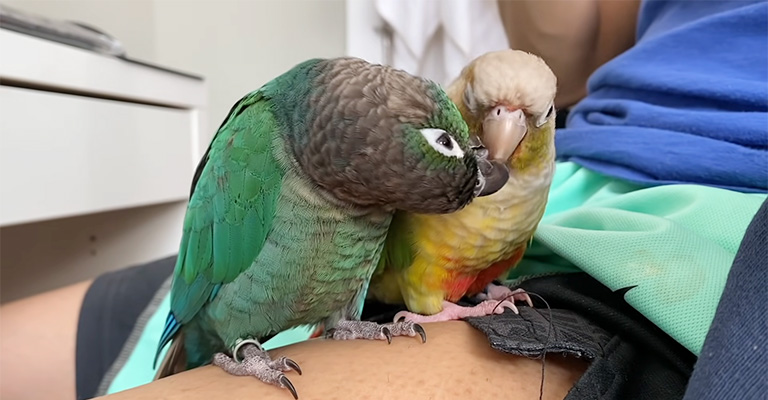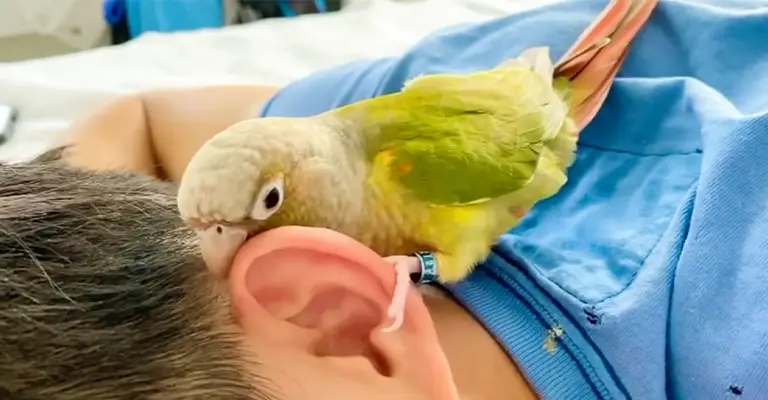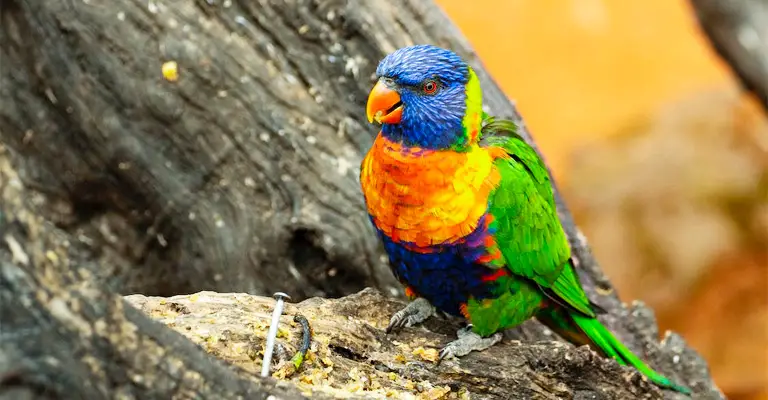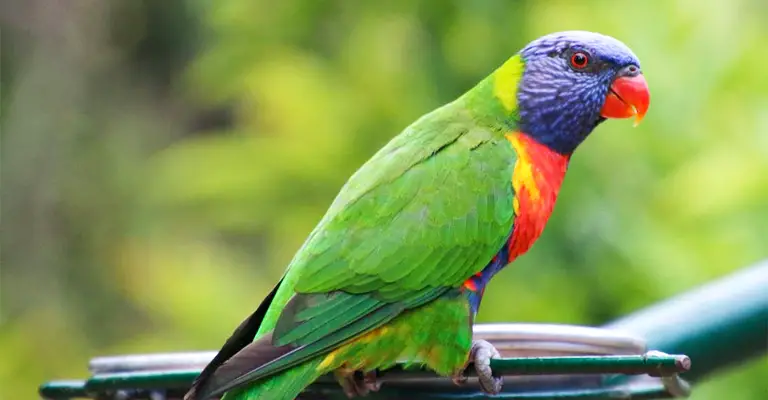Green cheek conures are known for their playful and affectionate personalities. However, sometimes these cute birds can become aggressive and start biting their owners. As a pet owner, it can be frustrating and confusing to deal with biting behavior in your green cheek conure.
But the good news is, this behavior can often be corrected with the right training and understanding of why it is happening.
In this blog, we will discuss the common reasons why green cheek conures bite and how to prevent and resolve this behavior.
Whether you are a new or experienced green cheek conure owner, this guide will help you better understand and care for your pet bird.

Reasons for Biting
Green cheek conures are small and intelligent parrots that make wonderful pets. However, their biting behavior can be a major problem for their owners.
Biting can occur for a variety of reasons, including fear and anxiety, health issues, territorial behavior, and boredom or lack of mental stimulation.
1. Fear and Anxiety

Your green cheeks can have fear and anxiety for many different reasons. Some of them are as followed.
New Environment or Unfamiliar Person
Green cheek conures may bite when they are placed in a new environment or when they encounter an unfamiliar person.
This behavior is usually a result of fear and anxiety and can be reduced by gradually exposing the bird to new surroundings and people.
Loud Noises or Sudden Movements
Green cheek conures are sensitive to loud noises and sudden movements, which can also trigger fear and anxiety.
To reduce biting in this situation, it’s important to avoid making sudden movements and to keep the environment as quiet as possible.
Lack of Socialization
Green cheek conures that are not socialized from an early age are more likely to bite. It’s important to socialize your bird from a young age by exposing it to different people, sounds, and environments.
2. Health Issues

Several health issues can bother them and that can cause them to start biting out of the blue. Here are the possible health issues like that.
Physical Pain
If a green cheek conure is in physical pain, it may bite as a way to protect itself. Regular visits to the vet can help ensure that your bird is healthy and free of pain.
Illness or Injury
Illness or injury can also cause a green cheek conure to bite. If you suspect that your bird is ill or injured, it’s important to take it to the vet as soon as possible.
3. Territorial Behavior
Because of the territorial behavior of the birds, they can act in such a way. In this case, the following facts act effectively.
Protecting Their Cage or Personal Space
Green cheek conures can become territorial, especially when it comes to their cage or personal space. They may bite if they feel that their space is being invaded.
To reduce biting in this situation, it’s important to give your bird plenty of personal space and to avoid reaching into its cage without warning.
Mating Behavior
During the breeding season, green cheek conures may become more aggressive and may bite as a way of defending their territory or attracting a mate. It’s important to provide plenty of hiding places and perches for your bird during this time.
4. Boredom or Lack of Mental Stimulation

Finally, the reasons can be the result of their boredom. Here are the possible reasons they can be bored for.
Lack of toys or perches
Green cheek conures are intelligent birds that require plenty of mental stimulation to stay happy and healthy. If they don’t have enough toys or perches to play with, they may become bored and start biting.
Lack of interaction with owner or other birds
Green cheek conures are social birds that need plenty of interaction with their owners or other birds to stay happy and healthy. If they are left alone for extended periods of time, they may become bored and start biting.
Prevention and Solutions
At this point, you must be looking forward to learning about prevention. Well, I’ve categorized the prevention tips into some sections. They will help you understand the facts well.
Building Trust
- Consistent interaction and attention: Consistently spending time with your green cheek conure and providing them with attention can help build trust and reduce biting behavior.
- Gentle handling and socialization: Gentle handling and socialization can also help your green cheek conure feel more comfortable and reduce biting behavior.
- Positive reinforcement and treats: Using positive reinforcement and treats can also encourage your green cheek conure to behave appropriately and reduce biting.
Providing an Adequate Environment
- Properly sized cage: Providing your green cheek conure with a properly sized cage that is big enough for them to move around in can help reduce stress and biting behavior.
- Appropriate perches and toys: Providing your green cheek conure with appropriate perches and toys can help prevent boredom and reduce biting behavior.
- Access to natural light and fresh air: Allowing your green cheek conure access to natural light and fresh air can also help reduce stress and biting behavior.
Addressing Health Issues
- Regular veterinary check-ups: Regular veterinary check-ups can help ensure that your green cheek conure is healthy and not experiencing any underlying health issues that may be causing biting behavior.
- Prompt treatment of illnesses or injuries: If your green cheek conure is sick or injured, prompt treatment can help reduce pain and reduce biting behavior.
Bite Prevention and Solutions Conures: At a Glance
| Issue | Prevention and Solution |
| Fear and Anxiety | Build trust through consistent interaction, gentle handling, and positive reinforcement. |
| Health Issues | Regular veterinary check-ups and prompt treatment of illnesses or injuries. |
| Territorial Behavior | Provide an adequate environment with proper cage size and access to natural light and fresh air. |
| Boredom or Lack of Mental Stimulation | Encourage physical and mental stimulation through varied toys, perches, and daily playtime and training sessions. |
How to Treat The Woumd Made by a Conure?
If your Green Cheek Conure bites you and causes a wound, it’s important to take prompt and appropriate action to ensure proper treatment. Here are the steps to follow:
Assess the severity of the wound
Determine the extent of the injury. If the bite is deep, bleeding excessively, or you are concerned about the severity of the wound, seek medical attention immediately.
Clean the wound
If the wound is minor and can be managed at home, wash it gently with mild soap and warm water to remove any dirt or debris. Pat the area dry with a clean towel.
Apply an antiseptic
After cleaning the wound, apply a topical antiseptic, such as hydrogen peroxide or povidone-iodine, to help prevent infection. Follow the instructions on the product label.
Cover the wound
Depending on the location and size of the wound, consider covering it with a sterile adhesive bandage or dressing to protect it from further contamination.
Monitor for signs of infection
Keep a close eye on the wound for any signs of infection, such as increased redness, swelling, pain, or discharge. If you notice any concerning symptoms, seek medical attention.
Follow up with a healthcare professional
If the wound does not show signs of improvement within a few days or if you have any concerns, consult a healthcare professional for further evaluation and guidance.
Address the underlying biting behavior
While treating the wound, it’s essential to address the underlying cause of the biting behavior in your conure. Refer to the previous responses in this conversation for tips on managing and modifying biting behavior.
Remember that bites from birds, including Green Cheek Conures, can introduce bacteria into the wound, increasing the risk of infection. It is crucial to prioritize proper wound care and seek medical attention if necessary.
FAQs
Can Green Cheek Conures be trained to stop biting?
Yes, with proper training and socialization, it is possible to train a Green Cheek Conure to stop biting. This can be done through positive reinforcement, consistent interaction, and addressing any underlying issues such as fear, anxiety, or health problems.
Is it normal for Green Cheek Conures to bite?
Biting is a common behavior in Green Cheek Conures and can occur for various reasons such as fear, anxiety, territorial behavior, or boredom. However, with proper training and care, it is possible to reduce or eliminate biting in Green Cheek Conures.
What should I do if my Green Cheek Conure bites me?
If your Green Cheek Conure bites you, it’s important to remain calm and avoid reacting aggressively. Instead, try to identify the root cause of the biting behavior and address it through training, socialization, or addressing any health or environmental issues.
Can Green Cheek Conures live with other birds?
Yes, Green Cheek Conures can live with other birds, but it is important to ensure that they are properly socialized and introduced to each other in a controlled environment. It is also important to provide adequate space and resources for each bird to avoid territorial behavior and potential conflict.
How often should I clean my Green Cheek Conure’s cage?
It is recommended to clean your Green Cheek Conure’s cage at least once a week and to spot clean daily to maintain a healthy and hygienic environment. This includes removing any soiled bedding, food, or water dishes, and replacing any toys or perches that are worn or dirty.
Wrapping Up
Addressing biting behavior in Green Cheek Conures requires a comprehensive approach that considers the various underlying factors.
By focusing on building trust, providing a suitable environment, addressing health issues, and promoting mental and physical stimulation, owners can significantly reduce the occurrence of biting and create a harmonious bond with their pets.
Remember that each bird is unique, so patience and understanding are key to fostering a happy and healthy relationship with your Green Cheek Conure.
I can now anticipate that you’ve understood exactly what I am trying to say. Still, if you have any unclear facts about the green cheek’s biting behavior, please inform me. Thank you for your time.